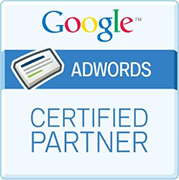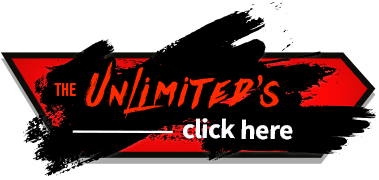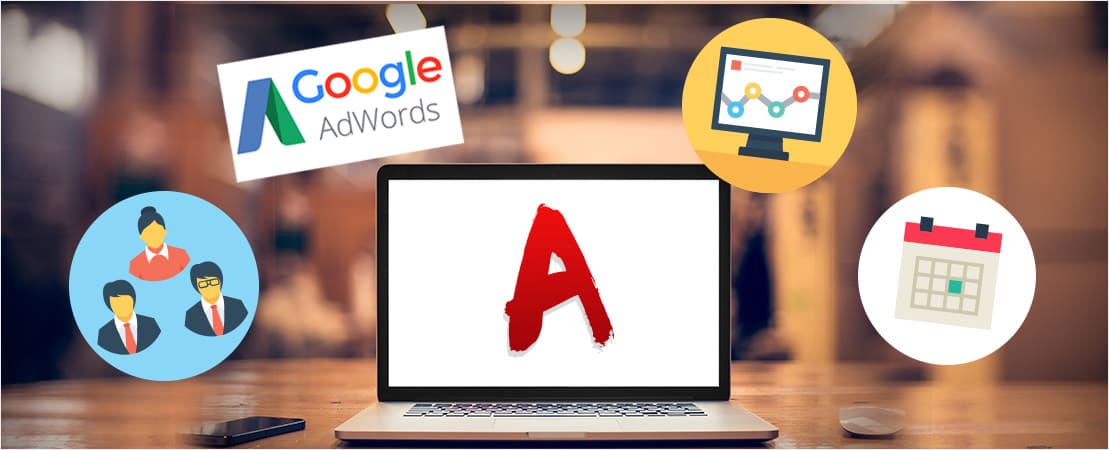No one is immune to information overload. That is, unless you have a photographic memory or are some kind of robot! This makes digesting new information, particularly if the subject matter is foreign, a time-consuming process, and takes even longer to put into practice. It could be anything from learning a new language, to a new dance routine or how to operate a new computer.
Luckily, what makes the team at Sites n Stores so different to other Web Development Companies, is that we really care about giving you, the Small Business Owner, as much education as possible about the wonderful Digital World. We ensure that you’re kept up to date, in the know and aware of all the relevant technical mumbo jumbo that enhances your understanding of the Digital Online Space.
Something we get asked about a lot here at Sites n Stores is PPC, or Pay Per Click, especially with regards to all the confusing jargon surrounding this Digital Marketing tool. CTRs, CPCs, ‘Bidding’ and ‘AdWords’ – no wonder it’s confusing!
For this reason, we’ve created a handy alphabetical run-down sheet of these perplexing PPC terms that will have you sounding like a pro in next to no time!
A
AdGroup:
This is a subset of a PPC Campaign comprising an ad or ‘group’ of advertisements that target a specific set of Keywords. An AdGroup typically represents specific areas, themes or products being advertised.
Ad Scheduling:
Setting Campaigns to target specific times and days in which your ads are to be shown.
AdWords:
Google’s advertising service, which allows advertisers to target their audiences in various Ad Campaigns.
Analytics:
The measurement, collection and analysis of Web data with a view to tracking progress, gaining insight and improving performance.

B
Bid:
The price an advertiser is willing to pay for someone clicking on an advert for a given Keyword or set of words.

C
Campaign:
A series of advertisements and associated Keywords set within budget, which functions as part of PPC.
Conversion:
When a visitor takes an action that the advertiser deems to be valuable and can potentially result in a sale. Some examples of a conversion can include clicking through to the Small Business’ relevant landing page, purchase on an e-commerce Website, a visitor signing up to a newsletter or completing an enquiry form.
Conversion Rate:
Measurable data of visitors that ‘convert’ through making purchases, registering for an emailing service or a request for additional product information.
CPC:
CPC, or Cost per Conversion, is the average cost required to achieve a conversion on a Website.
CPA:
The acronym for Cost per Acquisition, which is an Online Advertising pricing metric that measures how much your Small Business pays in order to attain a conversion.
CPC:
This stands for Cost per Click, a fee paid by an advertiser when a visitor clicks on an advertisement that is part of their PPC Ad Campaign.
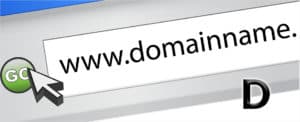
D
Domain Name:
A word or group of words used to uniquely identify your Website. Domain names often come with hundreds of different extensions known as top-level domains, such as .com, .net or com.au.
E
Exact Match:
A Keyword matching type used within PPC advertising. Exact Match is the most targeted match type. Exact Match will only show your ad to people who search for exactly how you entered the Keyword.

G
Geotargeting:
The method of targeting visitors based on their location, such as country, region/state, city, metro code/zip code etc.

K
Keyword:
Words or phrases commonly used by people to search for information via a Search Engine. Keyword selection is an essential part of any PPC campaign.

I
Impressions:
The number of times an advertisement is shown by a PPC network within a given period.

L
Landing Page:
The Web page your Small Business directs visitors to once your PPC advertisement is clicked on. Theoretically, the more times a Landing Page matches a specific query by the visitor, the better the results.
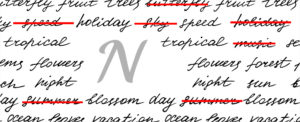
N
Negative Keyword:
A word or phrase added to your Ad Campaign that will stop your advertisement from being shown on a search results page. These are especially useful if it’s not relevant at all to the visitor.

O
Organic Search Results:
The standard, non-paid, search results compiled by a Search Engine using complex algorithms to rank sites.

Q
Quality Score:
A numerical score assigned by Google AdWords which essentially measures how relevant a Keyword is to its associated advert and the page you direct people to. When you set up a new Keyword Google provides an estimate of its quality score which is later refined via real world click through data.

R
Reach:
The total number of people exposed to your Small Businesses’ advertisement.

S
SEO:
The acronym for Search Engine Optimization, a series of strategies and tactics designed to improve your Search Engine ranking position in standard or organic search results.
Search Network:
A network of Search Engines that advertisers can opt in to advertise on through the Google AdWords platform.
Search Engine:
A program typically available via a Website such as Google or Yahoo, that enables you to search for information on the Web. Search Engines use complex algorithms to determine the ranking of Websites within search results.
Sponsored Results:
PPC Advertisements that are triggered on a Search Engine platform, such as Google, which results from visitors typing in a specific Keyword or search phrase.

U
Unique Visitor:
A statistic that counts each individual visitor to a site only once within a given time frame.
URL:
Also sometimes known as a ‘Display URL’, depending on who you speak to, a URL is the acronym for Uniform Resource Locator. It is the Web Address where documents and other resources can be found. In your Small Business’s case, the URL is Web Address (URL) is shown to people when they see a PPC advert.

V
Visitor:
A person that views your Website. Some prime examples include a Web user who has been redirected to your Website via a search engine platform, or from a PPC Ad Campaign (which your Small Business should be jumping for joy about!), and a direct visitor that’s typed in your business’ URL.
After reading through this helpful article we’re sure you have a clearer understanding
of all the Pay per Click jargon that gets thrown around these days. Now you’re ready to fully embed yourself in the conversation, get out there and start talking about how to boost your Small Business’s Online Presence with some fantastic Digital Marketing Strategies!


